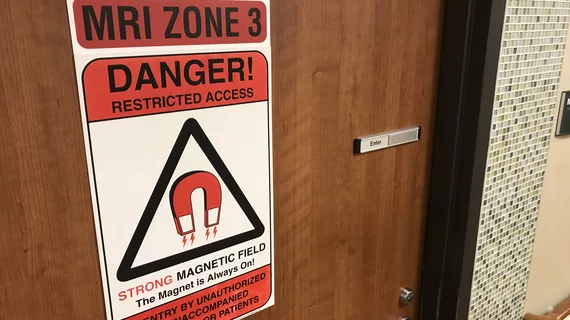Serious MRI accident to sideline scanner for months
A serious MRI accident is sidelining one hospital’s scanner for months, resulting in the delay of potentially thousands of exams, local news outlets are reporting.
The accident occurred earlier in July in the Kocaeli University radiology department in Izmit, Turkey, when a metal stretcher carrying a patient entered the MRI suite. The stretcher, which was not MRI compatible, was pulled into the machine, trapping the patient.
According to reports, the patient was stuck in between the stretcher and the scanner for hours before staff were able to separate them. So far, there has been no official statement from the hospital the accident occurred at, nor has information regarding the patient’s status been released.
Local news outlets, however, have reported on the extensive damage caused by the incident. According to newspaper Mavi Marmara Gazetesi, the repairs will tally more than 30 million Turkish Lira, or over $900,000 USD. What’s more, it could take up to seven months to complete the necessary repairs before the scanner will be fully operational again.
An administrative investigation is expected to take place soon.
Ironically, reports indicate that the accident occurred during MRI Safety Week earlier in July. It also comes at a time when MRI accidents, many of which have resulted in serious bodily harm or even the death of the individuals involved, have become more common.
Major accidents are still rare, but experts believe the changing landscape of MRI technology and the increasing complexity of the patient population could escalate the risks of what many consider “the safe modality.” This has prompted concerted efforts among experts to officially define a set of MRI safety requirements, which there are very few of currently.
In June, the American College of Radiology released their 2024 Manual on MRI Safety. And while the document contains important and up-to-date information, it serves as a set of guidelines, rather than requirements.

